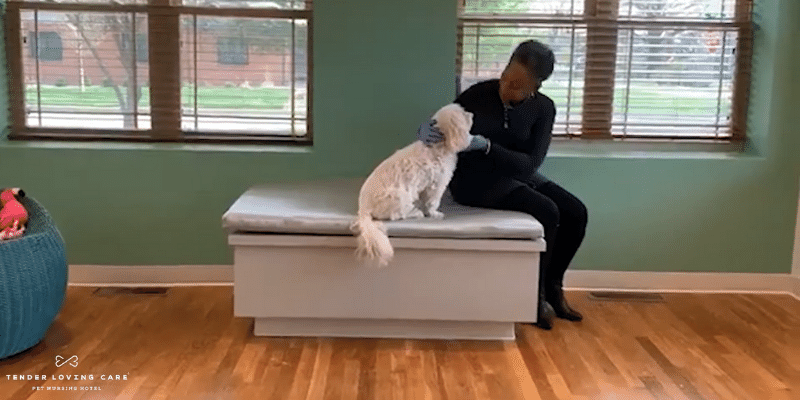Just as humans vary in health needs based on genetics and lifestyle, our canine companions also benefit from tailored health care. Understanding that different dog breeds have distinct characteristics and susceptibilities is crucial for ensuring their well-being. In this comprehensive guide, we will explore the importance of tailoring health care to your dog’s breed, examining specific considerations, preventive measures, and personalized care strategies to enhance the overall health and longevity of your furry friend.
- Recognizing Breed-Specific Health Predispositions:
Every dog breed comes with its own set of genetic predispositions and vulnerabilities. As a responsible dog owner, it’s essential to familiarize yourself with the potential health issues that commonly affect your dog’s breed. Breeds such as Labrador Retrievers may be prone to hip dysplasia, while Dachshunds are known for their susceptibility to spinal issues. Recognizing these tendencies allows you to proactively address and monitor potential health concerns.
- Customizing Nutrition to Breed Requirements:
Diet plays a crucial role in a dog’s overall health, and different breeds may have varying nutritional needs. Large breeds, such as Great Danes or Saint Bernards, often benefit from diets that support joint health and prevent rapid growth, which can contribute to skeletal issues. Smaller breeds, on the other hand, may require diets tailored to prevent obesity, as they can be more prone to weight gain. Consult with your veterinarian to determine the most suitable diet for your dog’s breed, age, and activity level.
- Tailored Exercise Plans:
The exercise requirements of dogs can vary significantly based on their breed. High-energy breeds, such as Border Collies or Australian Shepherds, may thrive on more rigorous and mentally stimulating activities, such as agility training or interactive play. Conversely, brachycephalic breeds, like Bulldogs or Pugs, may require more moderate exercise due to their respiratory challenges. Customize your dog’s exercise routine to accommodate their breed-specific needs, promoting both physical and mental well-being.
- Dental Care Tailored to Breed Characteristics:
Dental health is a critical aspect of overall well-being for dogs, and different breeds may exhibit varying susceptibility to dental issues. Small breeds, such as Chihuahuas, are more prone to dental problems due to their compact mouths, while larger breeds may be susceptible to issues like periodontal disease. Regular dental check-ups, toothbrushing, and providing appropriate chew toys can be tailored to address the specific dental needs of your dog’s breed.
- Grooming Practices Based on Coat Type:
Grooming requirements vary widely among different breeds, particularly in terms of coat type. Breeds with long, dense fur, like the Siberian Husky or Shih Tzu, may require more frequent brushing to prevent matting and reduce shedding. On the other hand, breeds with shorter coats, such as Beagles or Boxers, may need less intensive grooming. Understand your dog’s breed-specific grooming needs to maintain a healthy coat and skin, and consult with professional groomers when necessary.
- Preventive Measures for Genetic Conditions:
Certain genetic conditions are more prevalent in specific breeds. For example, hereditary eye issues can affect breeds like the Cocker Spaniel or the Dalmatian. Regular veterinary check-ups, including breed-specific health screenings, can aid in the early detection of potential genetic conditions. Proactive preventive measures, such as vaccinations, flea and tick control, and heartworm prevention, are essential components of tailored health care for all breeds.
- Regular Veterinary Check-Ups:
Regardless of breed, regular veterinary check-ups are fundamental to maintaining your dog’s health. However, for certain breeds prone to specific health issues, more frequent check-ups or specialized screenings may be recommended. These appointments allow your veterinarian to monitor your dog’s overall health, detect potential issues early on, and provide personalized advice based on your dog’s breed-specific requirements.


- Environmental Adaptations:
Consider your dog’s breed characteristics when creating their living environment. Breeds with thick double coats, like the Alaskan Malamute or the Samoyed, may be more comfortable in cooler climates. Conversely, breeds with short coats, such as the Greyhound or the Dalmatian, may benefit from extra warmth in colder weather. Adapt your dog’s living conditions to accommodate their breed-specific needs, ensuring their comfort and well-being.
- Behavioral Understanding:
Different breeds exhibit distinct behavioral traits, and understanding these characteristics is crucial for effective training and socialization. Tailoring your approach to training based on your dog’s breed can lead to more successful outcomes. For example, working breeds may thrive on tasks that engage their intelligence, while companion breeds may excel in social activities. Recognizing and embracing these breed-specific behaviors enhances the bond between you and your dog.
- Responsible Breeding Practices:
If you are considering adding a new furry member to your family, research and choose a reputable breeder who prioritizes responsible breeding practices. Responsible breeders aim to eliminate genetic issues by selectively breeding for health and temperament. They conduct health screenings on breeding pairs and prioritize the overall well-being of the dogs they produce. By choosing a responsible breeder, you contribute to the overall health and longevity of your chosen breed.
Conclusion:
Tailoring health care to your dog’s breed is a proactive and informed approach to ensuring a happy and healthy life for your beloved companion. By recognizing breed-specific predispositions, customizing nutrition and exercise, addressing dental and grooming needs, and staying vigilant with preventive measures, you empower yourself as a pet owner to provide the best possible care. Consult with your veterinarian regularly, stay informed about your dog’s breed-specific requirements, and cherish the unique qualities that make your furry friend one-of-a-kind. In doing so, you not only enhance their quality of life but also contribute to the overall well-being of the canine community.
















